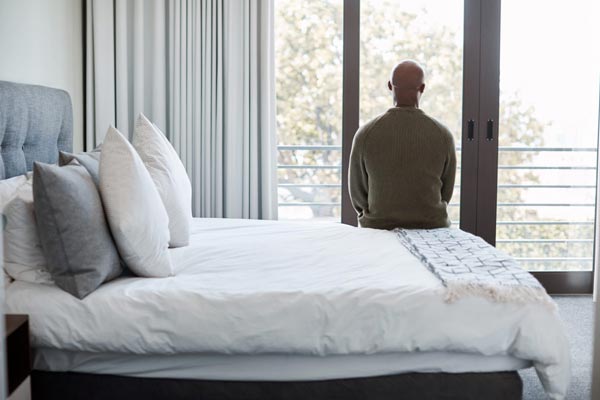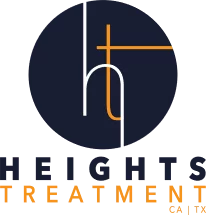Table of Contents
There are several types of treatment for depression today in light of the vast difference in how depression affects people. Depression often requires a unique approach toward treatment based on the person’s unique experience.
In this article, we’re exploring several types of treatment for depression.
Types of Treatment for Depression
Depression is a very common, potentially serious, and treatable mental health condition that affects about one in 15 adults annually. Also, approximately one in six people will experience depression throughout their lifetime.
Some symptoms of depression include sadness, apathy, and disinterest in things the person usually enjoys, loss of energy, sleeping changes, appetite changes, feelings of worthlessness, and difficulty concentrating. Those with depression can also experience physical symptoms, such as muscle aches, digestive disturbances, and headaches. In severe cases, depression can cause suicidal thoughts or suicide attempts, whether successful or not.
The good news is that depression is treatable. There are many different types of treatment for depression today, and many times, more than one treatment is used to help keep symptoms under control.
Here are several types of treatment for depression.
Different Types of Therapy
Many people with depression will be encouraged by their mental health care team to participate in different types of therapy. Therapy can be individual or done in groups, and it can be done face-to-face or online. Finding the right therapist can be a matter of trial and error; it is important that you are comfortable with your therapist or counselor and also that they provide the right kind of therapy for you and your unique circumstances. Here are some types of therapy that can be effective for depression:
- Cognitive-behavioral therapy. This type of talk therapy focuses on changing negative thought patterns. When those negative patterns creep in, you’ll be equipped with the skills to switch them over to something more positive.
- Psychodynamic therapy. Does your depression stem from a traumatic or hurtful experience in your past, a difficult childhood, or other issues you haven’t been able to get past? If so, psychodynamic therapy might be the right type for you, as it will help you resolve these conflicts and experiences in your mind.
- Supportive counseling. Sometimes, having someone to talk to can help you feel less alone and depressed. Supportive counseling allows you to talk about what’s bothering you without judgment.
- Couples or family therapy. Depending on who you live with, having sessions with your family or partner can be a helpful way to address your depression. It will be as beneficial for them as it will be for you because it will help them understand your condition and relate to you more effectively.
- Support groups. This is generally a group of people who are all dealing with depression. It might or might not be facilitated by a mental health professional. You’ll learn about other people’s coping methods and can share your own.
- Online resources. Any of the above can be found online. So you could attend therapy or a support group in person or online. Both methods can be effective.
Different Types of Medication
Some people with depression find that medication helps them with their symptoms. There are various types of medication to try, and it’s not unusual to try several different types in different dosages to find the best medication for you. In some cases, you’ll be treated best with more than one drug. And in many cases, you will do better if you have therapy and your medication. Here are some of the meds that might be used for your depression:
- Selective serotonin reuptake inhibitors (SSRIs): These are commonly prescribed because they are effective and don’t have many side effects. Some brands include Zoloft, Celexa, and Prozac.
- Tricyclic antidepressants (TCAs): This is an older type of medication and can have more side effects than SSRIs, but they are particularly effective for certain types of depression. Common brands include Tofranil and Elavil.
- Serotonin and norepinephrine reuptake inhibitors (SNRIs): These are similar to SSRIs and should not be used if you have certain liver, kidney, or eye conditions, so be sure to tell your doctor if you have any chronic health problems. Common brands include Effexor and Cymbalta.
- Norepinephrine and dopamine reuptake inhibitors (NDRIs): These have some side effects but are generally mild and will go away within a short time of starting the medication. Some brands used are Wellbutrin and Ritalin.
- Monoamine oxidase inhibitors (MAOIs): These are older medications and tend to have more side effects than the newer ones, but they can be effective when the newer medications don’t work well. Nardil and Parnate are two common brands prescribed.
- Esketamine: This drug has not been used for very long to treat depression and carries a risk of side effects. It is primarily used when someone has tried various other medications and has not felt relief. It is a nasal spray that is administered under medical supervision.
Lifestyle Changes
If you have mild to moderate depression, you might find that some lifestyle changes can reduce your symptoms. Even those with severe depression can see some relief with these methods.
- Exercise. Getting some exercise each day can reduce depressive symptoms and will also often reduce anxiety, which is often a coexisting condition.
- Getting enough sleep. Getting the right amount of sleep when you have depression can be challenging. If you are currently dealing with insomnia, controlling it can help. Talk to your doctor about ways to get better or more sleep and see if your depression improves.
- Eating a healthy diet. While switching your diet for a healthier one will not cure depression, it can help give you more energy, improve lethargy if that is one of your symptoms, and make you feel better overall. A nutritionist can help if you aren’t sure where to start.
- Spending time with others. Depression is often isolating. Even though it can be hard, finding ways to spend time with others can boost your mood and help you feel less alone.
Talk to your doctor if you think that you have depression. You can also take an online screening and share the results with your doctor to help start the conversation. If you have suicidal thoughts, get help right away. Call your doctor, go to the emergency room, or call the National Suicide Prevention Lifeline at 800-273-8255.
The Heights Treatment Editorial Guidelines
There is a vast amount of misinformation online especially as it relates to health & wellness. We have made it our mission at The Heights Treatment to provide accurate, medically sound content that has been medically reviewed by a doctorate level clinician so that you can trust the information contained within our website.





